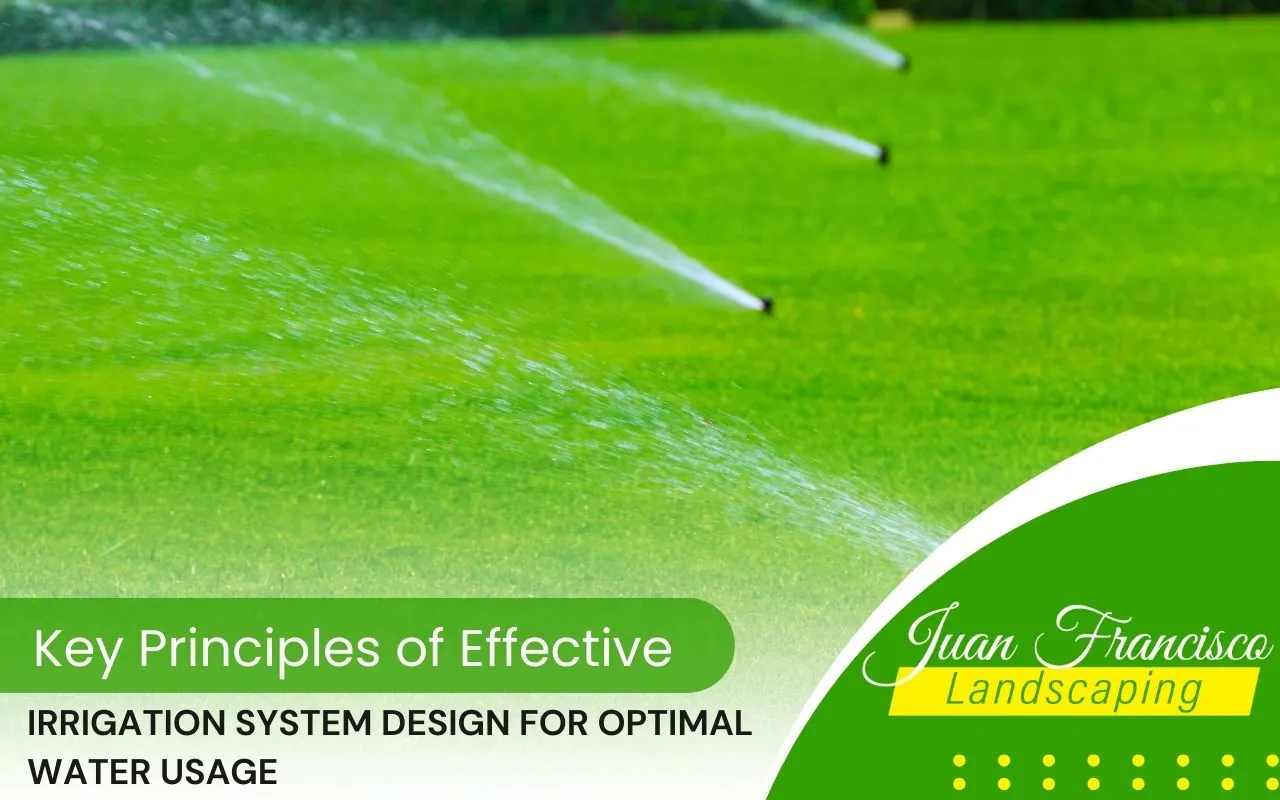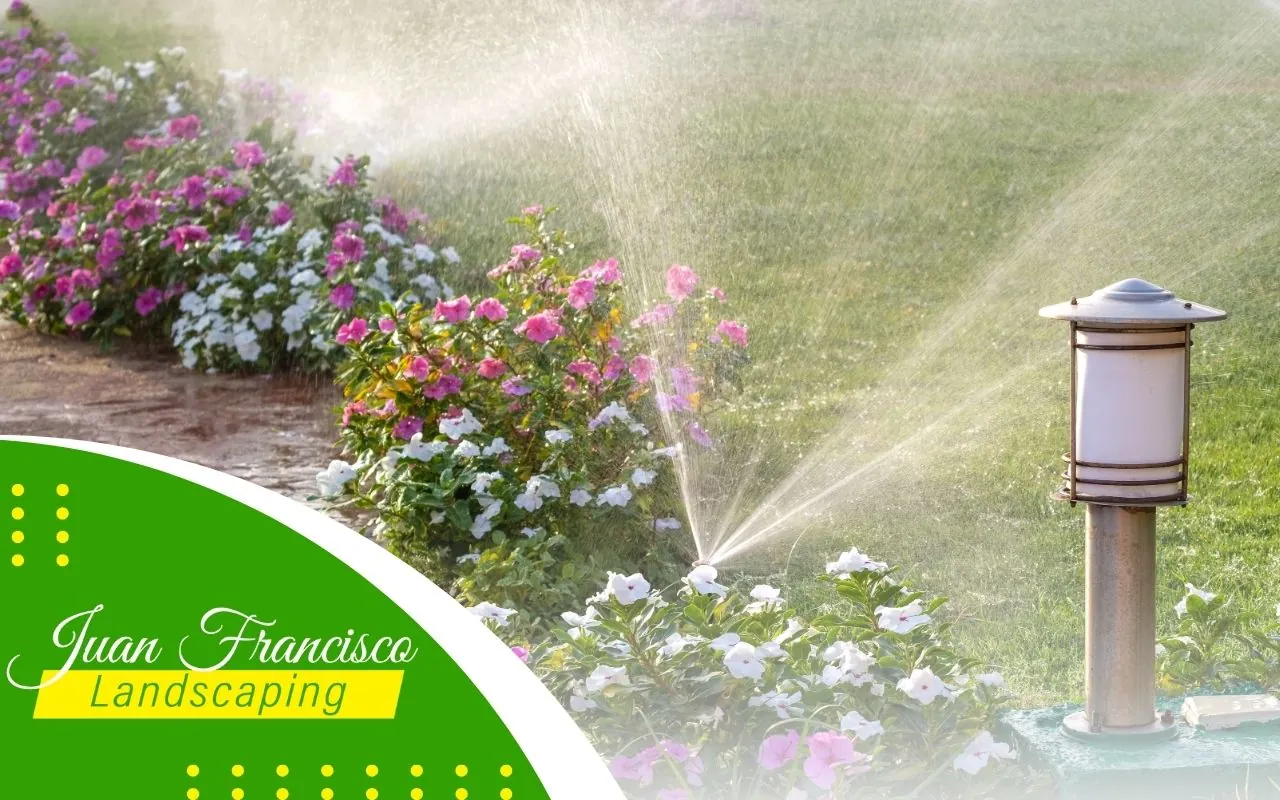
Key Principles of Effective Irrigation System Design for Optimal Water Usage
An efficient irrigation system design is crucial for conserving water and maintaining a healthy landscape. Have you ever struggled with overwatering or dry patches in your yard? Proper irrigation system design can solve these issues by delivering water exactly where it’s needed, minimizing waste, and ensuring your plants thrive. This guide will introduce you to the key principles that make an irrigation system both effective and sustainable.
Essential Principles of Effective Irrigation System Design
Understanding Your Landscape’s Water Needs

The first step in effective irrigation system design is understanding the specific water needs of your landscape. Different plants require varying amounts of water, and factors like soil type, sunlight exposure, and climate all play a role. Start by assessing the layout of your yard, noting areas with high water demand and those that require less. This information helps you design a system that delivers the right amount of water to each zone, avoiding both overwatering and underwatering.
Zoning for Efficiency
Creating zones is a critical aspect of irrigation system design. By dividing your landscape into zones based on plant types, sun exposure, and soil conditions, you can customize the watering schedule for each area. For example, lawns typically need more water than shrubs or flower beds. Grouping plants with similar water needs into the same zone ensures that each area receives the appropriate amount of water, optimizing efficiency and reducing waste.
Selecting the Right Irrigation Method
Choosing the right irrigation method is essential for effective water usage. Drip irrigation systems are ideal for delivering water directly to the roots of plants, reducing evaporation and runoff. Sprinkler systems, on the other hand, are better suited for covering large lawn areas. The key is to match the irrigation method to the specific needs of each zone in your landscape. This approach ensures that water is used efficiently, promoting healthy plant growth while conserving resources.
Implementing Smart Irrigation Technology
Incorporating smart irrigation technology can significantly enhance the efficiency of your system. Smart controllers adjust watering schedules based on weather conditions, soil moisture levels, and even the specific needs of your plants. These systems help prevent overwatering and ensure that your landscape receives the right amount of water at the right time. Additionally, using rain sensors and soil moisture sensors can further optimize water usage, making your irrigation system more responsive to real-time conditions.
Regular Maintenance and Adjustments
Regular maintenance is crucial for keeping your irrigation system running efficiently. Inspect your system periodically for leaks, clogged nozzles, and other issues that could lead to water waste. Adjust sprinkler heads to ensure they are covering the intended areas without spraying onto sidewalks or driveways. Seasonal adjustments to your irrigation schedule are also important, as water needs vary throughout the year. By maintaining and fine-tuning your system, you can ensure it continues to operate at peak efficiency.
Conserving Water with Mulch and Ground Cover
In addition to proper irrigation system design, using mulch and ground cover can help conserve water. Mulch retains soil moisture, reduces evaporation, and prevents weeds from competing with your plants for water. Ground covers, such as low-growing plants or decorative stones, also help to reduce water loss and create a more sustainable landscape. Incorporating these elements into your design complements your irrigation efforts and further enhances water efficiency.
Planning for Future Expansion

When designing your irrigation system, it’s important to plan for future expansion. As your landscape evolves, you may add new plants or change the layout of your garden. Designing a flexible system that can accommodate these changes will save you time and money in the long run. Consider leaving space for additional zones or installing a controller that can manage more stations than you currently need. This foresight ensures that your irrigation system can grow with your landscape.
Ready to Optimize Your Irrigation System?
Designing an efficient irrigation system is key to conserving water and maintaining a healthy landscape. Our team is here to help you implement these principles for optimal water usage. Contact us today to discuss your irrigation needs and create a system tailored to your landscape. Let’s work together to ensure your garden thrives while saving water!
